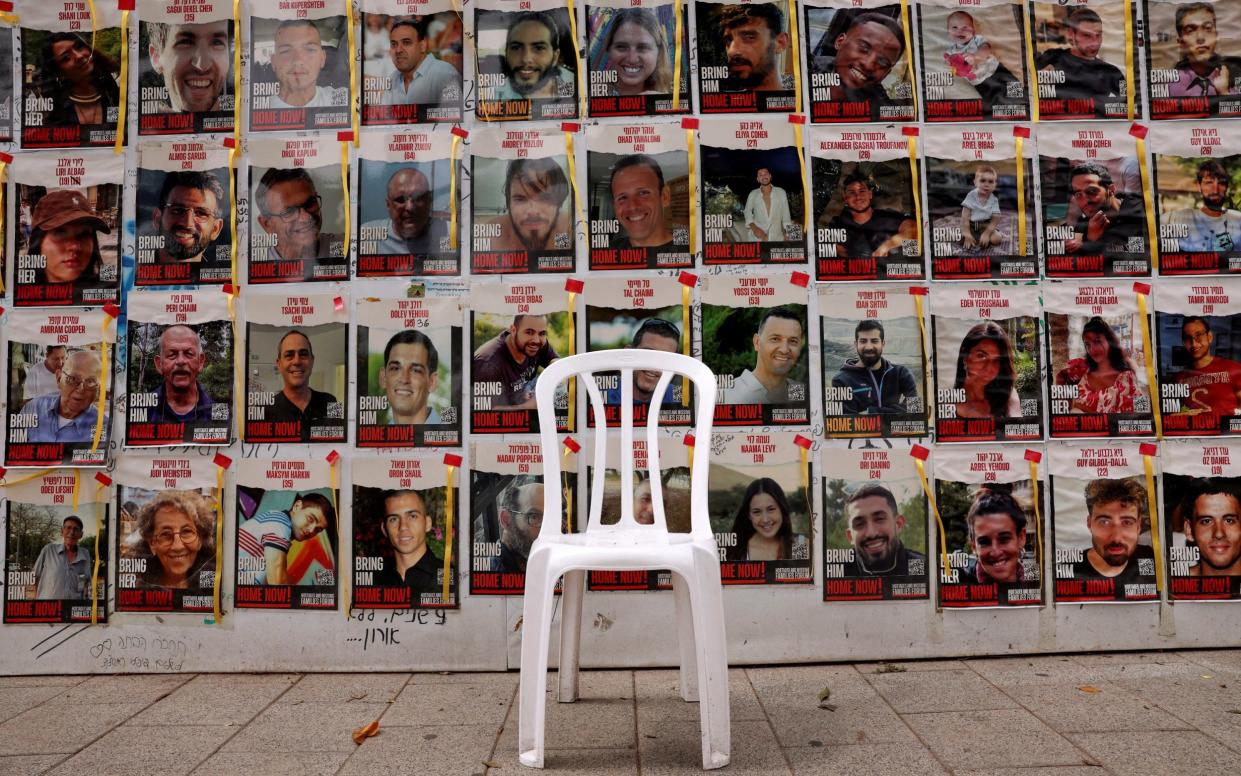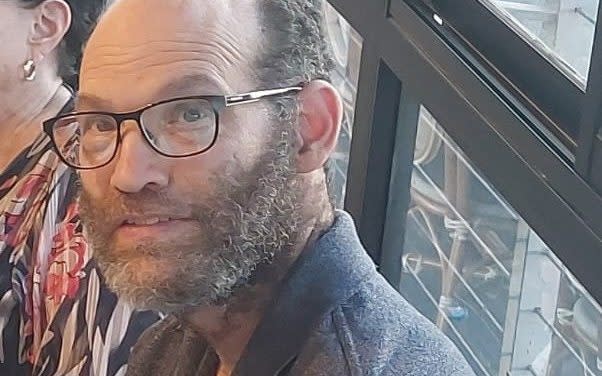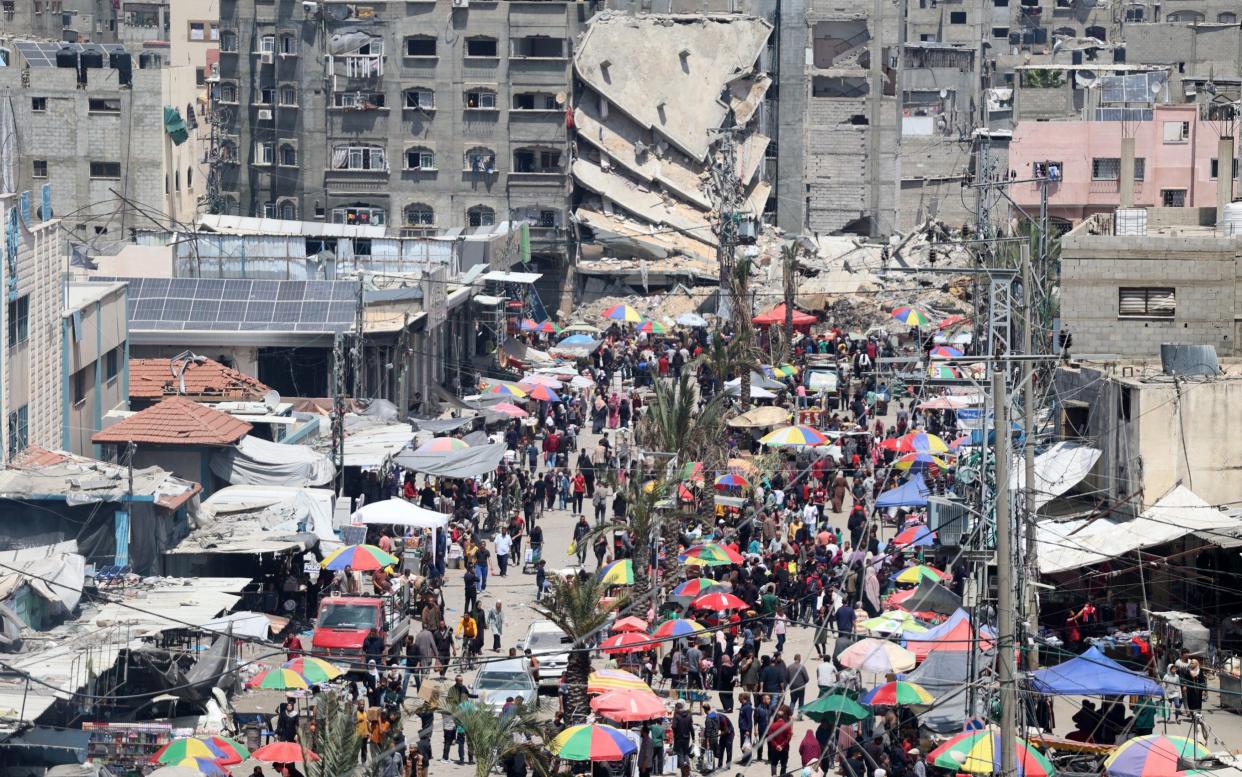Israel enrols Gazan citizens as recruits to help in search for hostages

Israel’s intelligence services have enrolled a swathe of new recruits from within Gaza to aid them in their search for the remaining hostages.
It has become much easier to draw Gazans in to work for Israel after the breakout of war on Oct 7, intelligence sources told the Telegraph, with offers of cash, immunity from prosecution, or physical safety.
At the same time it is easier for elite units of the Israel Defense Forces (IDF) to enter the Gaza Strip unnoticed, and one source told The Telegraph a huge team of specialists trained to blend into the Palestinian community was currently working through key locations in the area.
Some 130 hostages are still thought to be held within Gaza, though the total could be significantly lower amid claims that dozens have died or been killed during the conflict. Two of the remaining captives are British citizens, Nadav Popplewell, 51, and Emily Damari, 27.
On Sunday, hopes rose for an Egypt-brokered deal to release the remaining hostages. Antony Blinken will attend the World Economic Forum in Riyadh on Monday in an attempt to push the deal through.


Israel has offered Hamas the “restoration of sustainable calm”, according to Axios, on the first occasion officials have suggested an end to the war in its seven-month duration. Hamas is due to deliver its response to the proposals, which include the right of return for Palestinians displaced from their homes in north Gaza, on Monday.
However, the government of Benjamin Netanyahu is prepared for negotiations to collapse, as they have many times already, and is readying a force to invade the southern city of Rafah in the coming weeks.
Hamas’ leadership and the remaining hostages are reported to be located in the city, where more than one million citizens have taken shelter to avoid Israeli bombardments.
Intelligence operatives are already working to locate hostages and prepare potential rescues.
“It’s much much easier to access than before Oct 7 when we had limited access to Gaza and we didn’t have a lot of possibilities of sources there or recruitment,” one intelligence source told The Telegraph.
“Now, the situation is completely different because we are there and can offer a lot to anyone we wish to recruit. First of all, his life. Second of all, some sort of immunity and third, is money and everything else. So it’s much easier right now to gain access to sources and to recruit than before. It’s a completely different ball game.”

Sparked by the invasion of thousands of Hamas terrorists into Israel by air, land and sea on Oct 7, killing 1,200 mostly civilians and taking over 250 hostages, Israel’s retaliatory bombardment has, according to Hamas figures, left over 33,000 dead in Gaza. Israel’s military claims at least 14,000 terrorists from Hamas’s more than 35,000 strong militia have been killed.
“The people in Gaza are bewildered, desperate and frightened and those factors are very important. When you recruit you’re always looking for the weak spots and now, there are enormous weak spots,” a second security source told The Telegraph.
“Since November, nothing has happened in terms of formal negotiations so we have to be on the ground and find the hostages ourselves, and do everything we can to eliminate Hamas,” the source added.
Two hostages, Fernando Marman, 60, and Louis Har, 70, were rescued by the IDF in a daring raid in Rafah earlier this year.
Meanwhile on Sunday, the US was reportedly involved in diplomatic efforts to prevent the International Criminal Court from issuing an arrest warrant for Mr Netanyahu in connection to its genocide case against Israel.
An arrest warrant in the case raised by South Africa would make it almost impossible for the Israeli prime minister to travel abroad and would have huge implications for Israel diplomatically on the world stage.
Ben Caspit, an Israeli analyst and biographer of the prime minister, wrote on Sunday that Mr Netanyahu is “frightened and unusually stressed” over the prospect of an arrest warrant against him and other Israelis by the UN tribunal in The Hague. He said that Mr Netanyahu has been on a “marathon” of calls with the US, in particular, Joe Biden, the president, to prevent his arrest.
There is speculation that Karim Khan, the ICC’s prosecutor, may this week issue warrants for the arrest of Mr Netanyahu, Yoav Gallant, the defence minister, and Herzi Halevi, the IDF Chief of Staff. Neither the US nor Israel are among the 124 countries that signed the Rome Statute of the International Criminal Court.
Mr Netanyahu, who is under significant pressure from the US not to invade Rafah, knows that an international arrest warrant from the Criminal Court in The Hague, as opposed to the International Court of Justice, is a defining event that can make him “a persecuted person for the rest of his life”, wrote Mr Caspit.
“He is invested in the effort to thwart it 24/7. I would not outright rule out the possibility that the significant flexibility in Israel’s position on the issue of the abductees, including signs of agreement to the end of the war (which are denied by the prime minister’s office), are part of this event,” he said.



